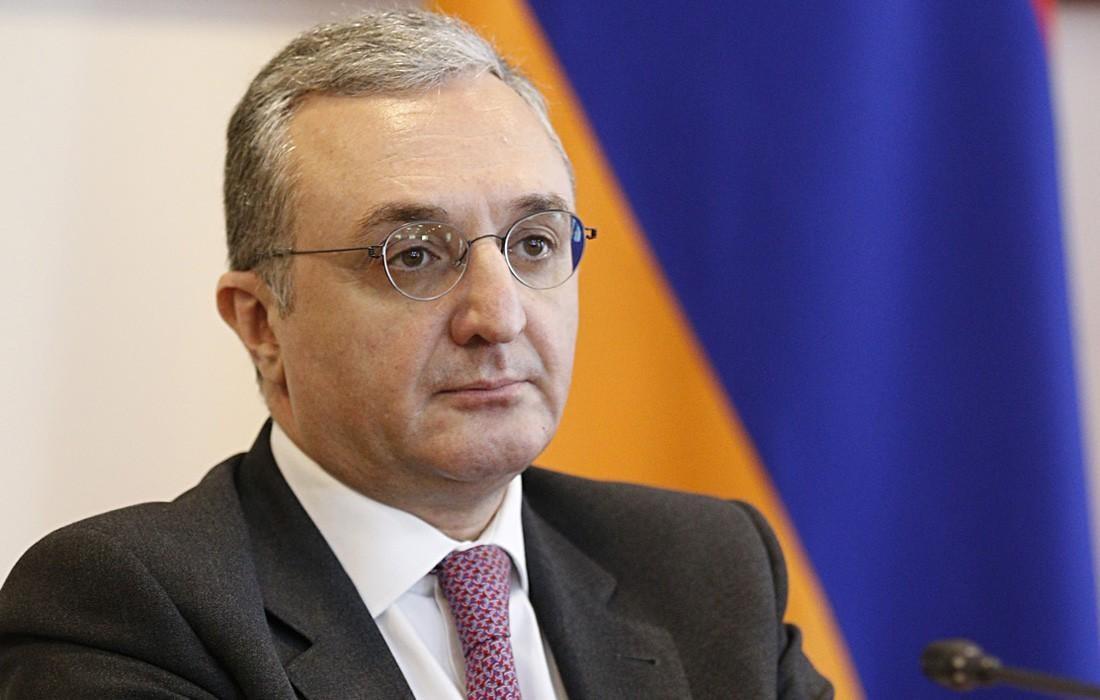
Armenian Foreign Minster to Press: "It's still too early to talk about Pashinyan-Aliyev meeting"
Armenian Minister of Foreign Affairs Zohrab Mnatsakanyan today, in Yerevan, met with members of the ruling parliamentary Im Kayl (My Step) faction. Mnatsakanyan spoke with reporters both prior to and after the meeting. Here’s an unofficial translation of the ministry’s transcript of two press briefings with reporters. (The ministry’s published transcript does not specify the names of the various reporters asking questions to Mnatsakanyan.)
Mr. Mnatsakanyan, I want to know what is to be discussed at this session and whether it will be about the resignation of the Russian government.
These are regular meetings. This time it was proposed by the My Step faction and I gladly accepted. The topics of our discussion are quite broad, as they all relate to Armenia's external security issues and to the activities we conduct in the foreign sector. It is a rather broad agenda that concerns our country, developments around our region, our activities in different directions, with our partners ...
How do you assess recent developments in Iran and the Middle East?
We have already spoken on this issue. The Ministry of Foreign Affairs constantly informs the public. Of course, the undermining of stability in our region is of great concern to us.
In this respect, we work with our partners in the immediate neighborhood and in a situation where our immediate partners have disagreements. This also has an impact on our region, on regional security and the security of our country. After all, this is happening in our neighborhood.
In this respect, within our country, in Armenia, our entire national security system works systematically so that we are ready. At the same time, we work with all our partners. You have noticed that we are having appropriate telephone conversations. our diplomatic staff is very active in all areas. We really hope that only through a peaceful, negotiated way can the situation be stabilized and we can thus avoid any destabilizing developments.
At the end of last year, the prime minister announced in the National Assembly that there is no document at the negotiating table. If so, will the negotiations start from scratch?
No. We have repeatedly touched upon this question. The negotiation process has been going on for 25 years, and during the 25 years under the Minsk Group co-chairmanship, which we continue to consider the most effective and most effective, internationally recognized framework for the negotiation process, many approaches and ideas have been formed within that process. It is extremely essential and fundamental for us to combine these many parameters which express paramount positions for us.
Is a meeting with Elmar Mammadyarov planned in the near future?
As you know, the negotiation process is ongoing. We have never avoided negotiations. On the contrary, we are very actively involved in the negotiation process.
I’ve had the opportunity to talk about this since the day the government assumed its mission in 2018. Since May, there has been no time for us to delay the process. There has been quite a lot of work during the past year, there have been an adequate number of meetings at the ministerial level, there has been an official meeting in March, and there have been informal meetings. The process continues. You know we are announcing the meetings through the co-chairs at the same time.
After the last meeting, Elmar Mammadyarov gave a very pointed interview. How will this affect the future process?
It will not affect me. We do not avoid negotiations.
Is a Pashinyan-Aliyev meeting planned?
It's still too early to talk about it. We continue to work at the level of the foreign ministers.
What questions were the MPs mainly interested in?
The discussion was behind closed doors and this format must be respected.
But we talked mainly about what I said before the meeting started. I certainly appreciate the effectiveness of such meetings, as well as the parliamentary platform that has been and remains very important to us, where diplomacy is also visible.
By the way, parliamentary diplomacy is a very important active direction, and here our cooperation and contacts are very important. This is that extra platform. Of course, we, in committees, parliamentary groups, delegations in different bodies, whether PACE, OSCE PA or others, carry out this function in all formats. We also hold meetings with such factions in a similar format to further enhance the effectiveness of the common foreign policy, where the parliamentary sector has its important work to do.
Can you share some news on the exchange of prisoners. Is the process continuing?
This question is extremely sensitive for me, and it’s hard for me to accept the situation at hand. Unfortunately, I still have nothing to say at this time.
Is the process ongoing?
Of course. The process continues.
Can the change of the Russian government in any way affect Armenian-Russian relations?
Armenian-Russian relations have a solid basis and a broad agenda. Within that rich agenda and in all our formats our work is very effective, very active, and we work the way we work.
Can you clarify whether a meeting of the Foreign Ministers of Armenia and Azerbaijan is planned in the near future?
Please respect the approach that we announce such things simultaneously. But, as I said, we do not avoid such things, and the normal negotiation process must continue. We must always be involved. In this sense, when we agree on all the details necessary for the meeting, we will announce them
 Videos
Videos Photos
Photos
Write a comment